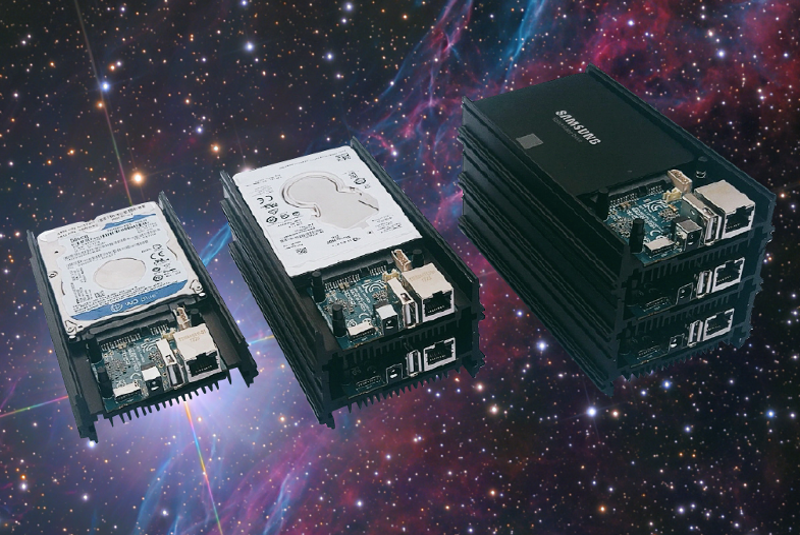
Many people have been using the ODROID-XU4 for server, NAS, cluster, mining and build-farm applications, thanks to its high computing performance and connectivities. They kept requesting easier and cheaper solutions for scalability with a stripped-down version of XU4, so Hardkernel has introduced a new product that is intended to be used for building an affordable and powerful Home Cloud server, called the ODROID-HC1, which is now available for USD$49 at http://bit.ly/2wjNToV.
ODROID-HC1
The ODROID-HC1 is a single board computer (SBC) which is an affordable solution for a network attached storage (NAS) server. This home cloud server centralizes data and enables users to share and stream multimedia files to phones, tablets and other devices on a network, which is ideal for a single user on many devices, for sharing files between family members, and for developers or a group. You can tailor the ODROID-HC1 to your specific needs, and there is plenty of software available with minimal configuration. The storage of the server can be customized by using a large capacity hard drive or SSD. Depending on your needs, the frame is made to be stackable. The engineered metal frame body is designed to store a 2.5 inch HDD/SSD while offering excellent heat dissipation.
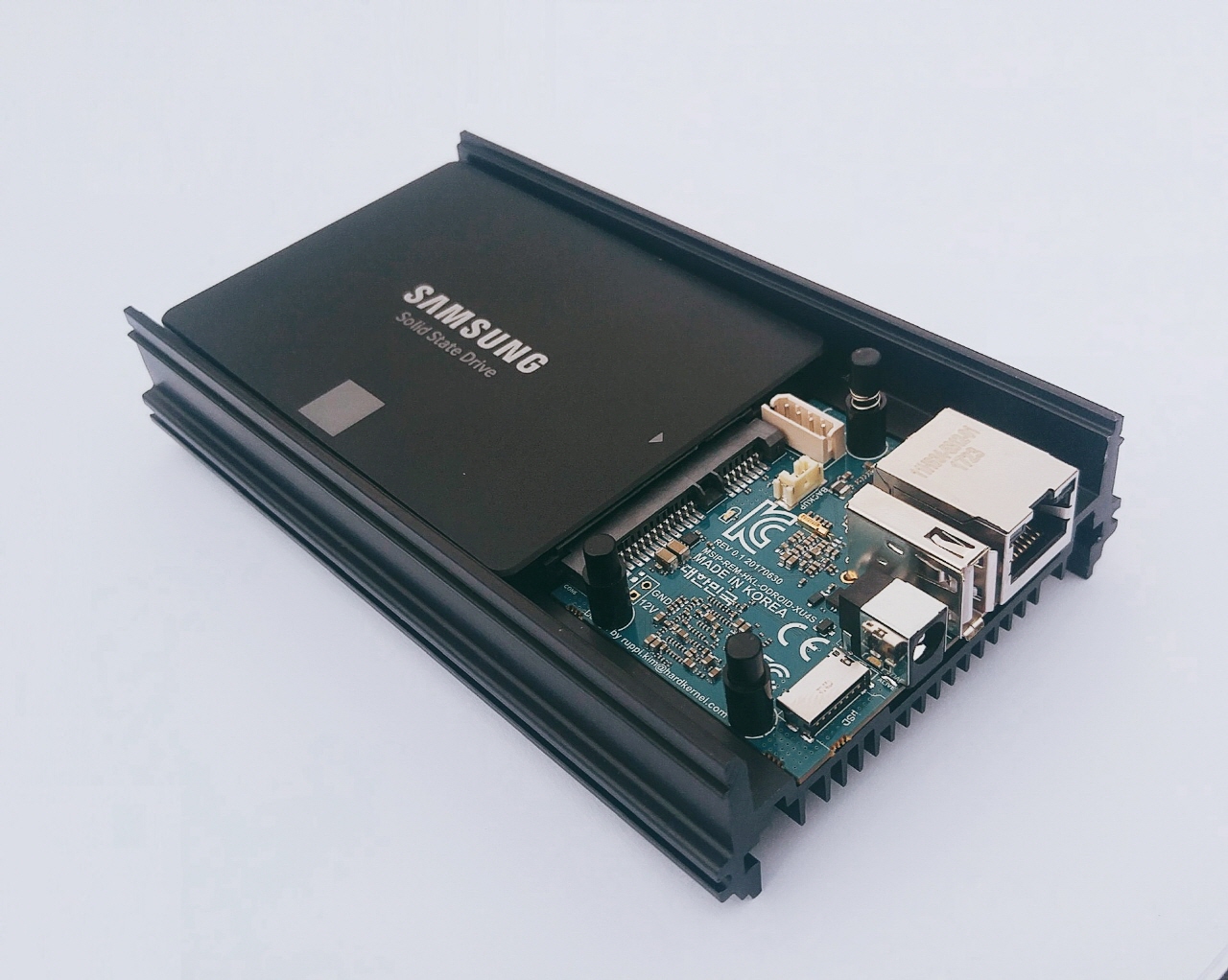
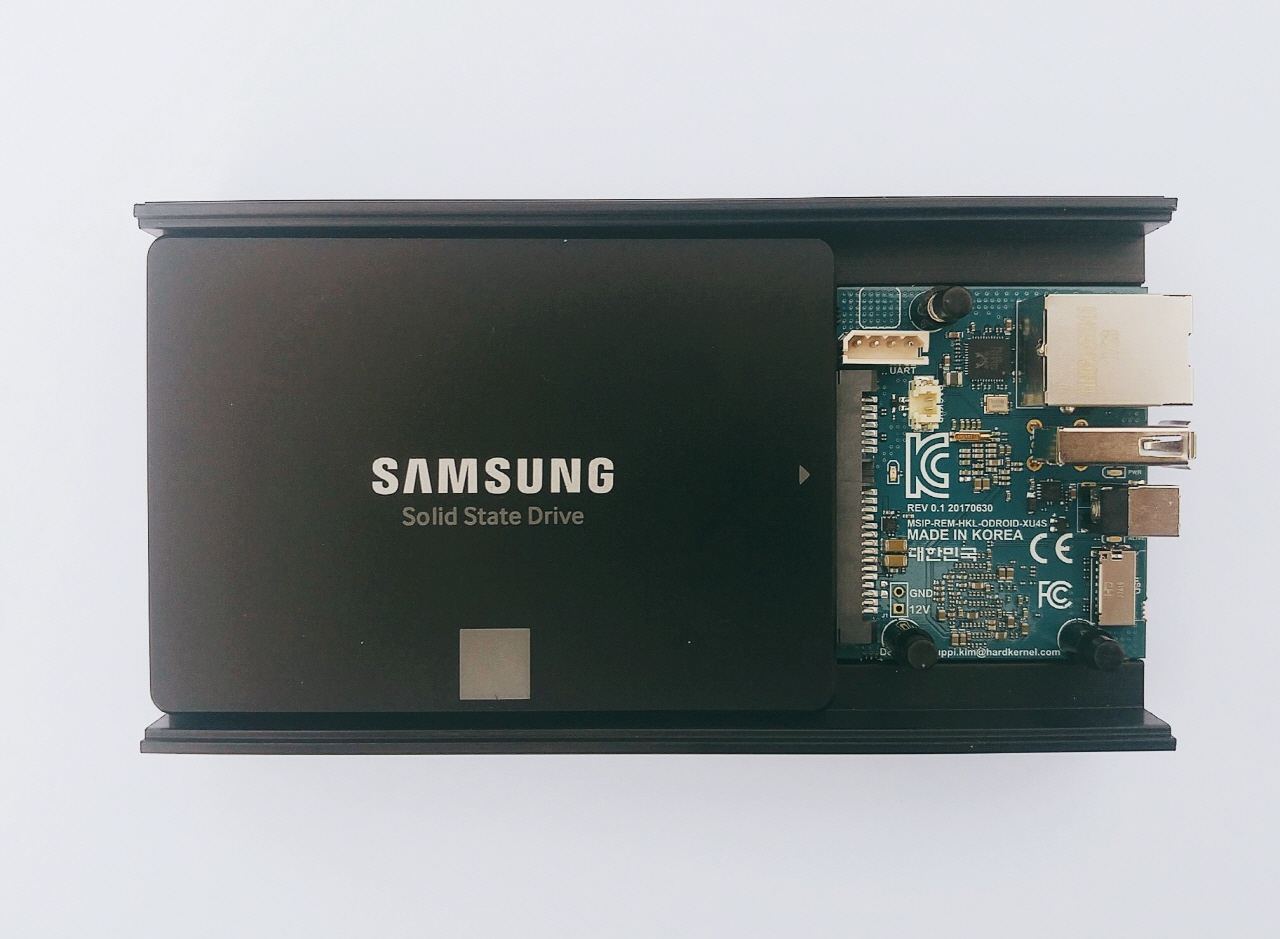
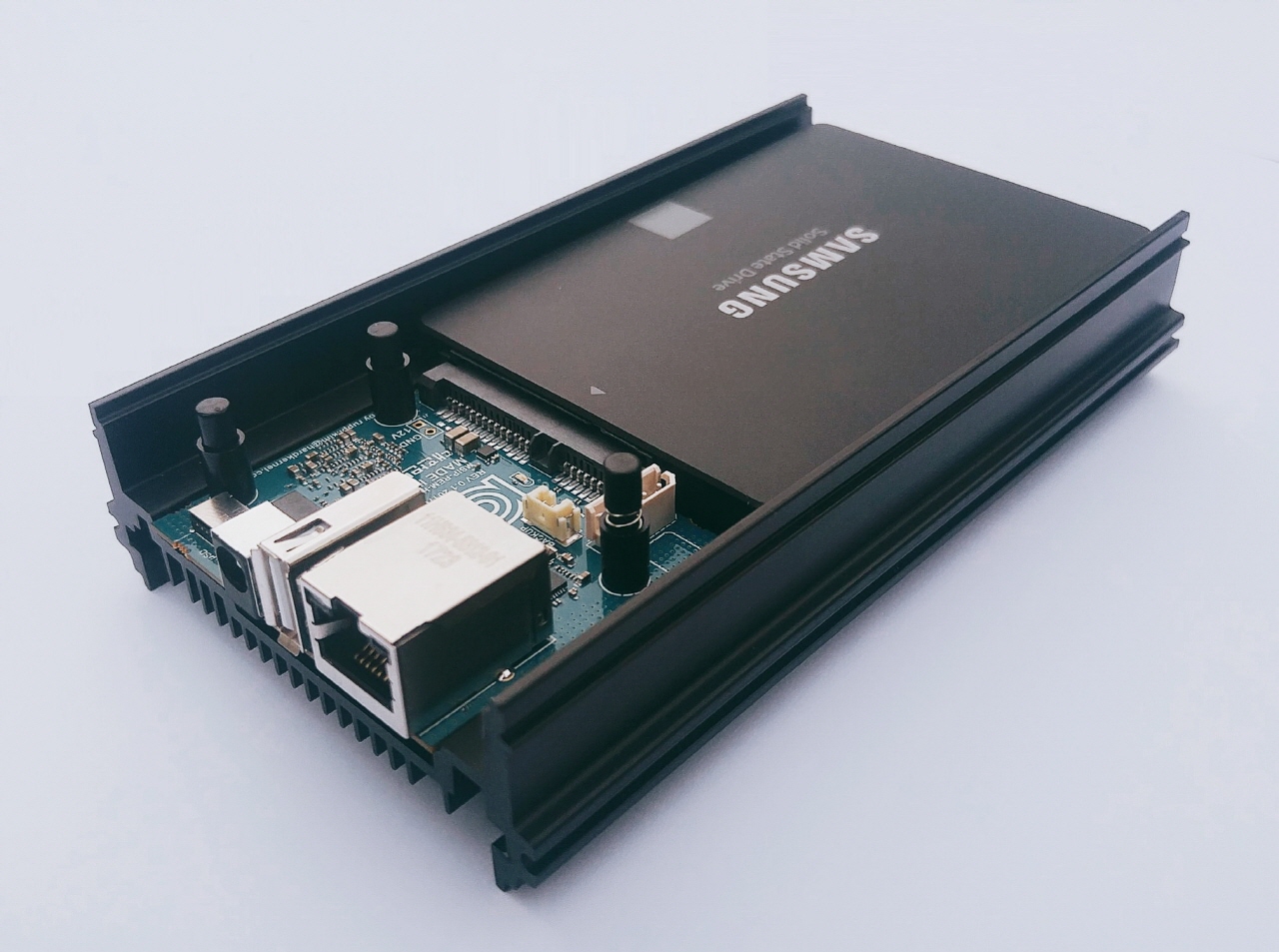
The ODROID-HC1 is based on the very powerful ODROID-XU4 platform, and can run Samba, FTP, NFS, SSH, NGINX, Apache, SQL, Docker, WordPress and other server software smoothly using full Linux distributions like Ubuntu, Debian, Arch and OMV. Available and ready-to-go operating system (OS) distributions are on the Hardkernel Wiki at http://bit.ly/2wjNsuI. Any OS that runs on the XU4 is fully compatible with the HC1. We guarantee the production of ODROID-HC1 to the middle of 2020, but expect to continue production long after.
Key features
- Samsung Exynos5422 Cortex-A15 2Ghz and Cortex-A7 Octa core CPUs
- 2Gbyte LPDDR3 RAM PoP stacked
- SATA port for 2.5inch HDD/SSD storage
- Gigabit Ethernet port
- USB 2.0 Host
- UHS-1 capable micro-SD card slot for boot media
- Size : approximately 147 x 85 x 29 mm (including aluminum cooling frame)
- Linux server OS images based on modern Kernel 4.9 LTS
Since bad USB cables and faulty USB-to-SATA bridge chipsets make users struggling due to physical/electrical tolerance issues as well as driver compatibility issues, the ODROID-HC1 has a built-in SATA connector on the PCB with a fully tested SATA bridge controller. To lower the cost, the board size was minimized due to the cost of the 10-layers PCB, which resulted in the removal of some features such as the HDMI output, eMMC connector, USB 3.0 hub, power button, and slide switch.
Any type of 2.5-inch SATA HDD/SSD storage may be installed, including 7mm, 9.5mm, 12mm and 15mm thick units. The Seagate Barracuda 2TB/5TB HDDs, Samsung 500GB HDD and 256GB SSD, Western Digital 500GB and 1TB HDD, HGST 1TB HDD and other storages were fully tested with UAS and S.M.A.R.T. functions.
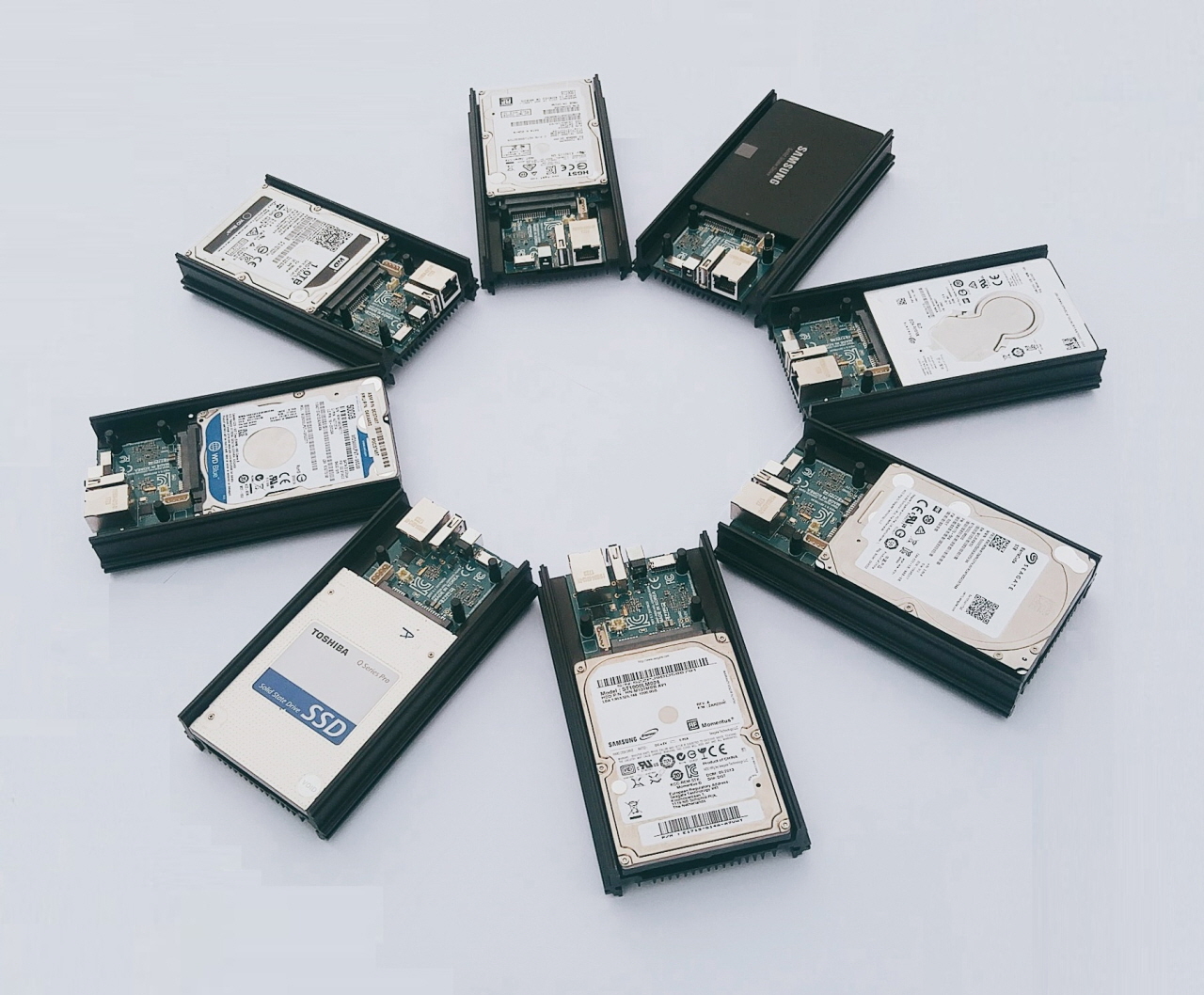
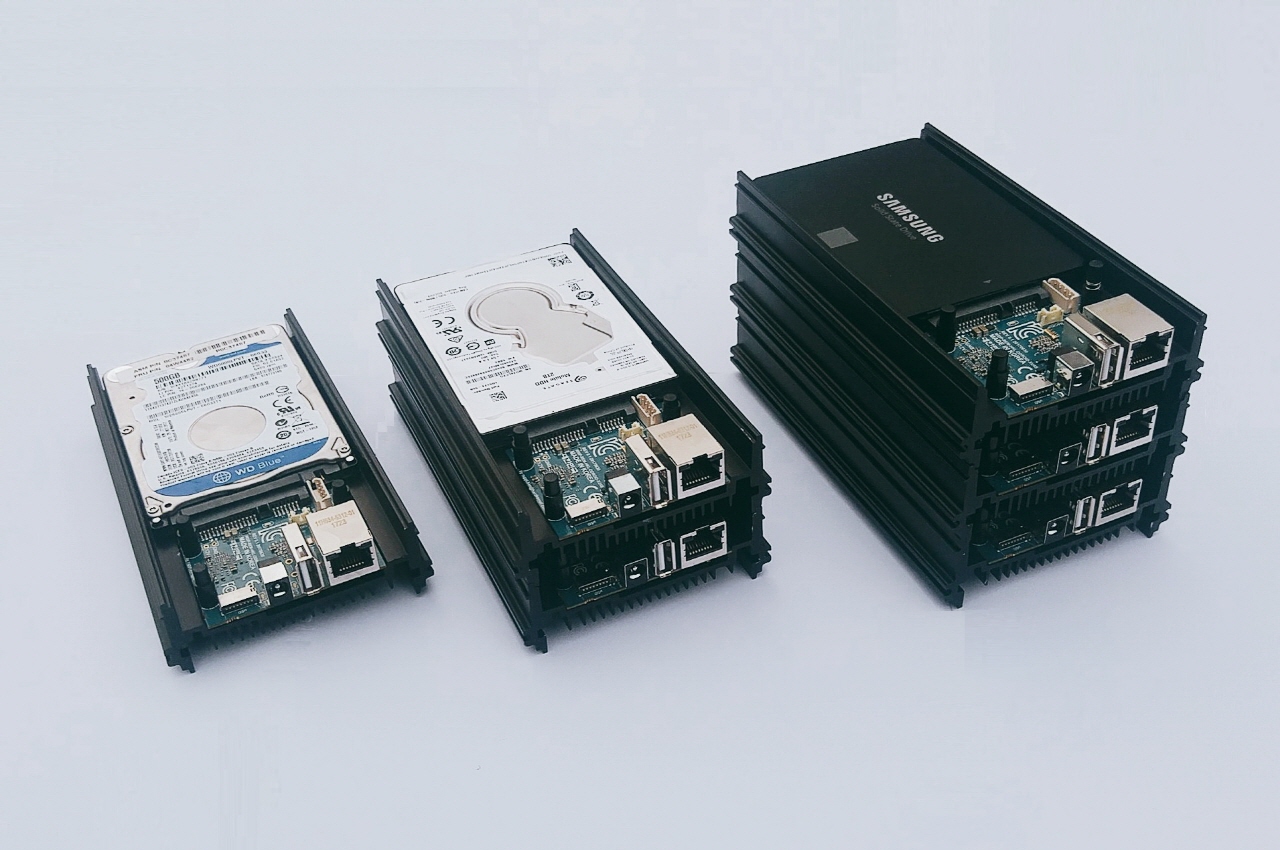
For further details and a demonstration of the ODROID-HC1 functionality, please watch the video at https://youtu.be/t-L99pUANaA.
ODROID-MC1
The ODROID-MC1, which stands for My Cluster, is a simple solution for those who need an affordable and powerful personal cluster. It is similar to the ODROID-HC1, but excludes the SATA interface and adds a large cooling fan for heavy computing loads. It is anticipated to be available in September 2017 for USD$200.
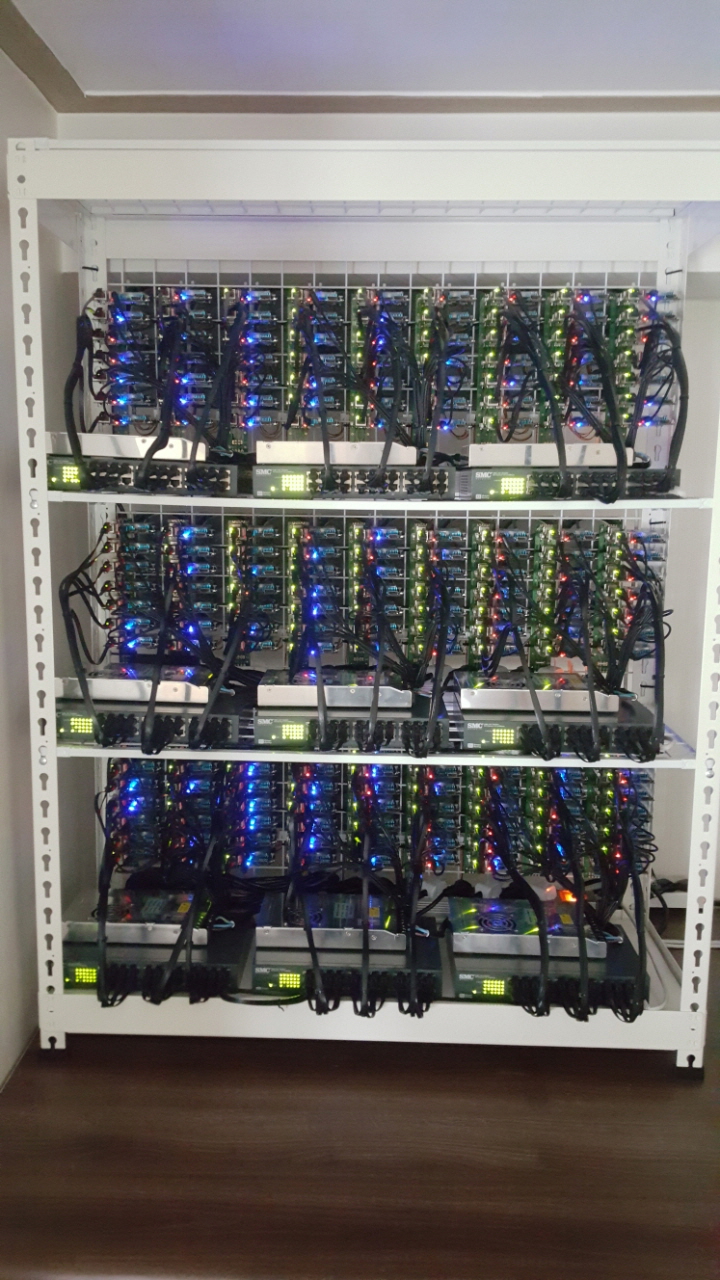
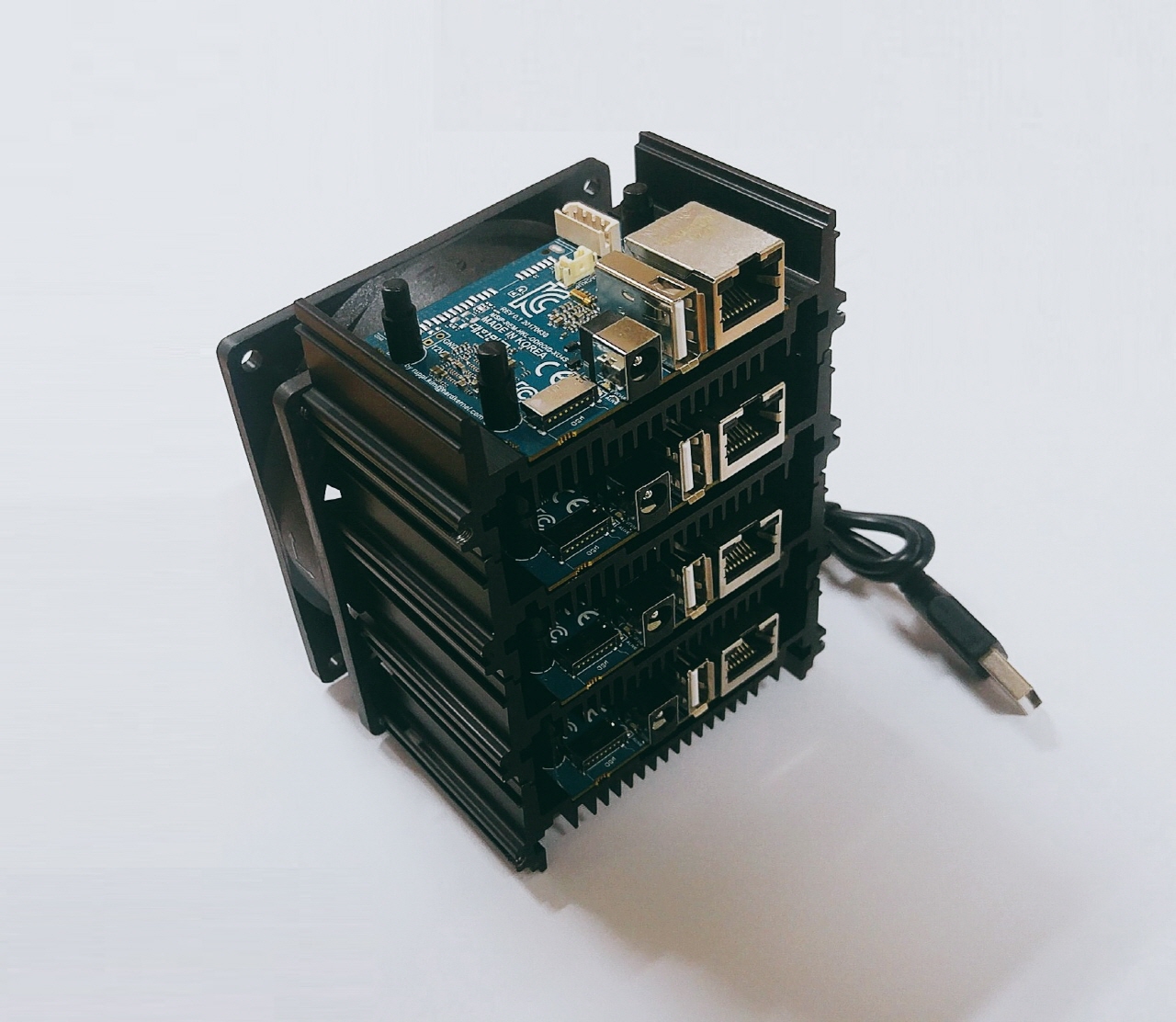
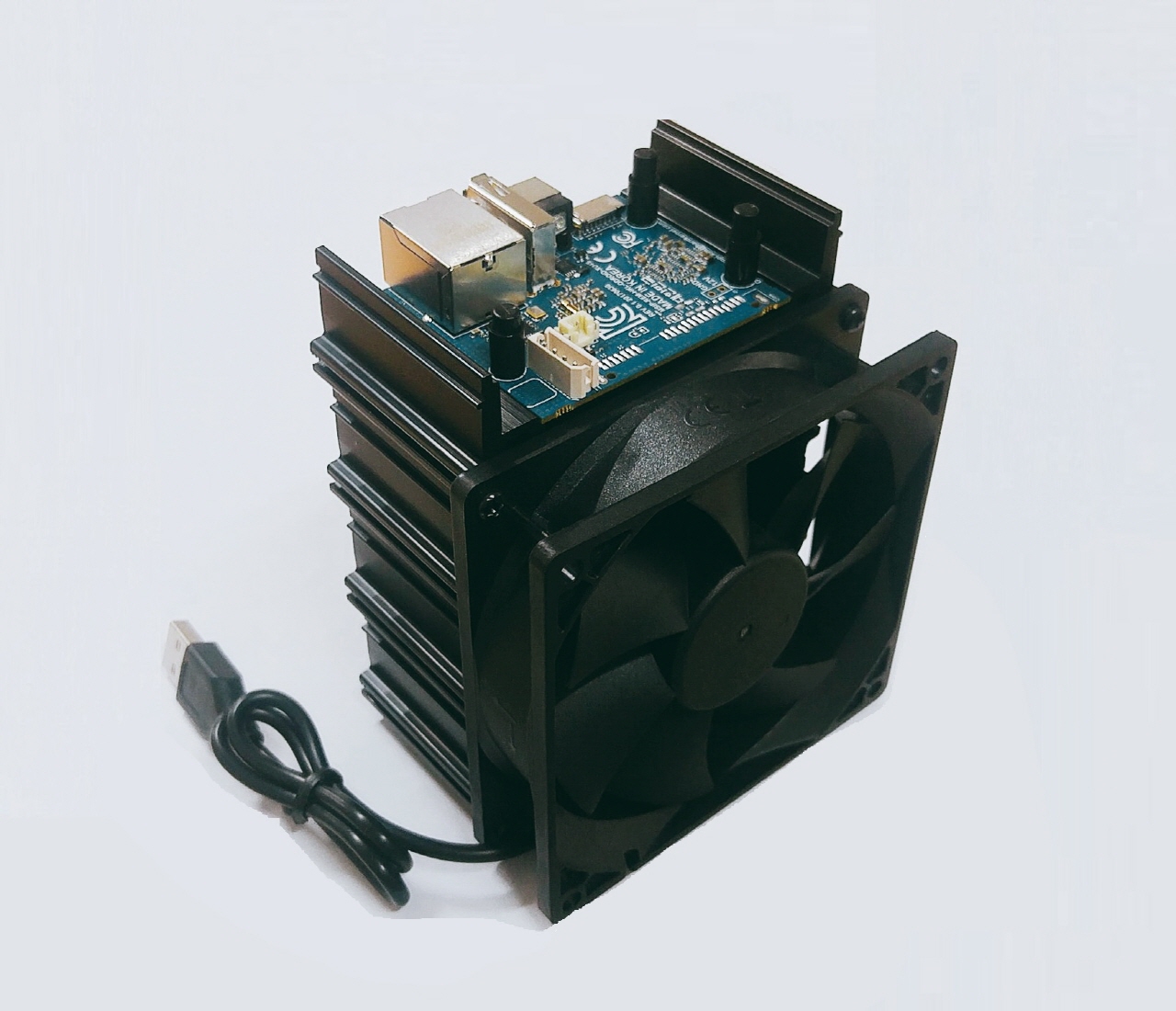
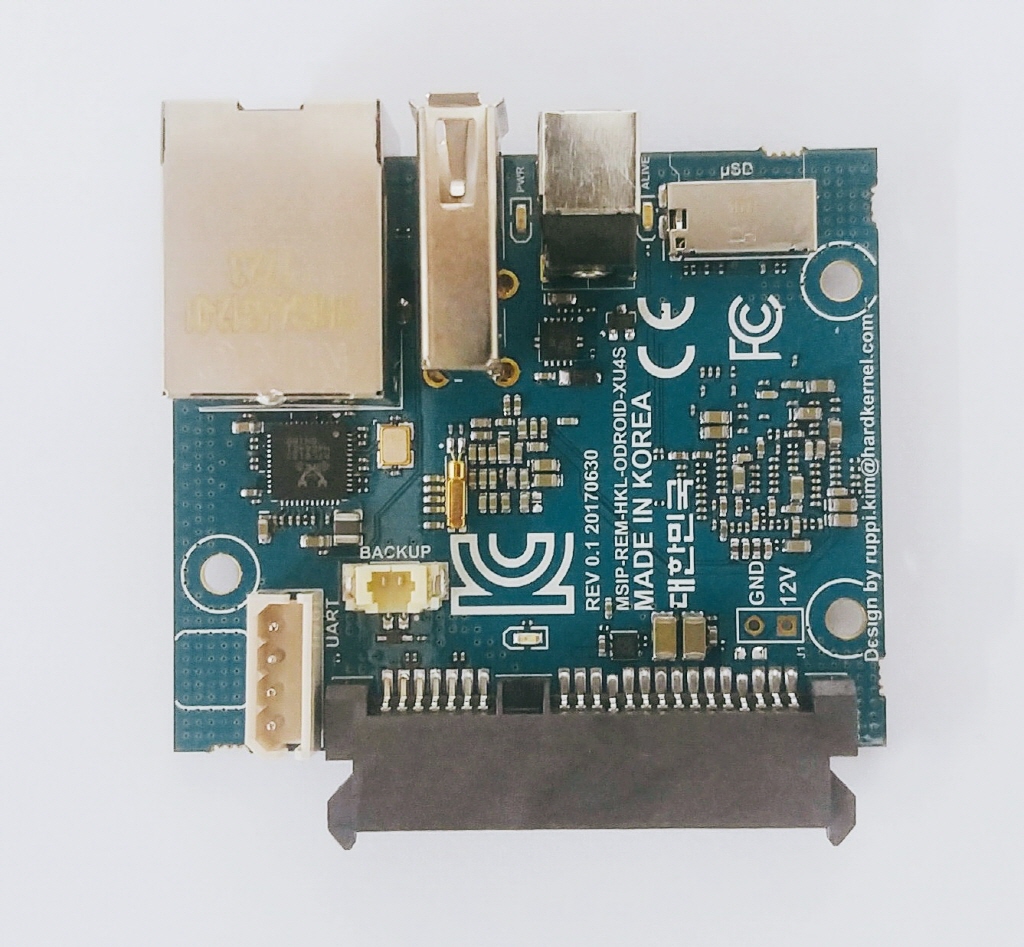
Technical specifications
Schematics http://bit.ly/2vLy7zH PCB mechanical drawings (AutoCAD format) http://bit.ly/2el0VZm Product details http://bit.ly/2xzBXho

Be the first to comment